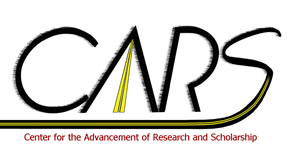Event Title
Poster: Cognitive and Linguistic Factors Influencing Sentence Recall in Young, Middle-Aged and Older Normal Adults
Location
Moakley Atrium
Start Time
9-5-2012 3:45 PM
End Time
9-5-2012 5:00 PM
Description
Sentence recall involves immediate repetition of auditory sentences (Archibold and Joanisse, 2009). Sentence imitation tasks are included as subtests in most adult and pediatric standardized language assessment measures (Boston Diagnostic Aphasia Examination–3 [Goodglass, Kaplan & Baressi, 2000], Clinical Evaluation of Language Fundamentals–4 [CELF-4, Semel, Wiig, & Secord, 2003]. In the case of specific language impairment (SLI) in children, it is well documented that sentence recall has been shown to be a clinical marker for SLI with sensitivity and specificity at 90% and 85%, respectively (Conti-Ramsden, Botting, & Faragher, 2001). This study investigated sentence recall in three groups of healthy adults, (25–85 yrs of age). Results from a univariate analysis of covariance revealed naming, working memory capacity, executive function and age significantly influence sentence recall abilities in adults. These findings suggest that semantic, phonological loop automaticity, working memory capacity, attentional resources and age are essential processes to accurate sentence recall.
Poster: Cognitive and Linguistic Factors Influencing Sentence Recall in Young, Middle-Aged and Older Normal Adults
Moakley Atrium
Sentence recall involves immediate repetition of auditory sentences (Archibold and Joanisse, 2009). Sentence imitation tasks are included as subtests in most adult and pediatric standardized language assessment measures (Boston Diagnostic Aphasia Examination–3 [Goodglass, Kaplan & Baressi, 2000], Clinical Evaluation of Language Fundamentals–4 [CELF-4, Semel, Wiig, & Secord, 2003]. In the case of specific language impairment (SLI) in children, it is well documented that sentence recall has been shown to be a clinical marker for SLI with sensitivity and specificity at 90% and 85%, respectively (Conti-Ramsden, Botting, & Faragher, 2001). This study investigated sentence recall in three groups of healthy adults, (25–85 yrs of age). Results from a univariate analysis of covariance revealed naming, working memory capacity, executive function and age significantly influence sentence recall abilities in adults. These findings suggest that semantic, phonological loop automaticity, working memory capacity, attentional resources and age are essential processes to accurate sentence recall.
